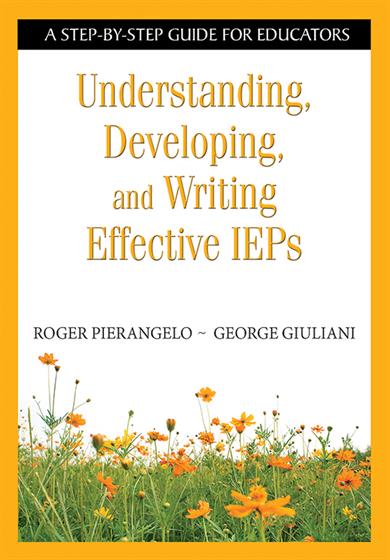
Hands-on, Practical Guidance for Educators
From math,
literacy, equity, multilingual learners, and SEL, to assessment, school counseling,
and education leadership, our books are research-based and authored by experts
on topics most relevant to what educators are facing today.
Understanding, Developing, and Writing Effective IEPs
Clear, helpful answers for educators involved in developing Individualized Education Programs.
Written by legal and education experts, this practical resource provides teachers with a step-by-step plan for creating, writing, and evaluating IEPs to help ensure a Free Appropriate Public Education in the Least Restricted Environment for students with disabilities. Based on the latest reauthorization of IDEA 2004 and its accompanying regulations, this text includes:
- Sample materials from authentic IEPs
- Checklists and forms for planning an effective IEP meeting
- Frequently asked questions and a glossary of special education terms
- Guidelines that encourage positive collaboration between teachers, administrators, and families
- Grade Level: PreK-12, Elementary, Secondary
- ISBN: 9781412917865
- Published By: Corwin
- Year: 2007
- Page Count: 176
- Publication date: April 06, 2007
Price: $39.95
For Instructors
When you select 'request review copy', you will be redirected to Sage Publishing (our parent site) to process your request.


